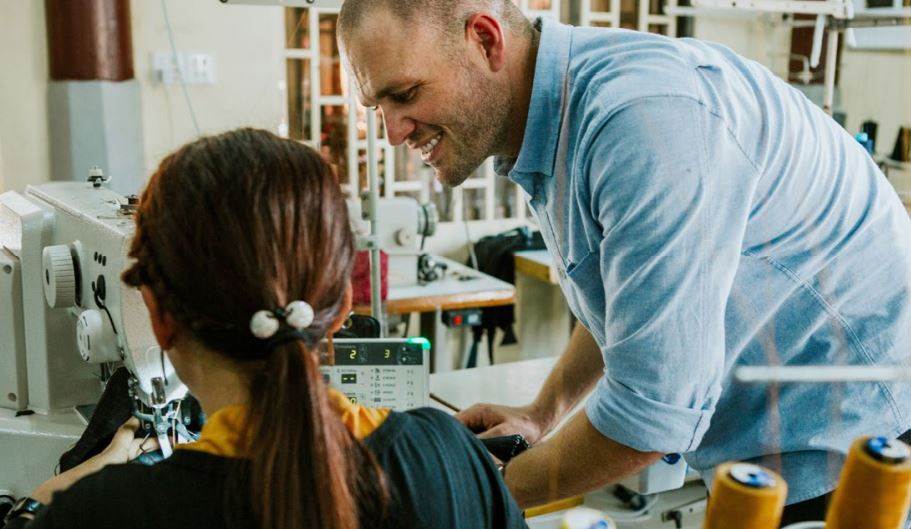Outland sets ‘new agenda’ in first sustainability report

In 2019, it expanded its cut and sew facilities in Cambodia and set up a wash facility in Phnom Penh, equipped with laser, ozone, and E-Flow technology. “This vertical integration gives us greater control over our product, our supply chain stewardship, our brand image and ultimately our impact,” it said. It also integrated solar energy into its production facilities.
Among recent achievements it lists: the launch of Maeka, a white label under which it manufactures for other brands; the opening Outland Denim onsite Health Clinic and Education Centre; and replacing 250kg of biodegradable cassava bags replaced plastic poly bags for international transport of garments.
Stated goals include:
• 100% of all post-industrial waste materials to be diverted from entering landfill within two years
• implement post-consumer recycling or second-hand programme within 5 years
• provide access to free cervical cancer screenings for all female employees
• deliver 150 hours/year of free education programmes
• increase use of solar energy in Cambodian Production Facility; and
• conduct a Life Cycle Assessment (LCA) measuring the impact of Outland Denim’s carbon footprint.
The company has a strong stance on employee wellbeing and provided recommendations for the creation of Australia’s Modern Slavery Act 2018. Around 15% of Outland Denim’s full-time cut-and-sew facility employees in Cambodia have come from NGO partners working with people who have come out of human trafficking and other forms of exploitation, and three-quarters have come from exploitative situations or from a position of vulnerability to being exploited.
In the next 12 months, instead of seasonal collections, Outland will produce bi-monthly capsule collections and expand into new garment categories. “The shift will support retailers by offering a shorter lead time from design to delivery, minimise the risks associated with long lead forecasting, minimise dead stock and overstock (inventory that does not sell or cannot be sold), and offer newness to consumers with a considered approach,” it explained.
The company has also reviewed every style in its core range and introduced new washes into its best-selling shapes.
Outland CEO James Bartle (pictured) said: “The repercussions of covid-19 for people working across the fashion value chain have too often been devastating. Our ongoing commitment is to ensure that we represent and speak for the most vulnerable while making continual improvements to our business to ensure equity for all. This extends to our stewardship of natural resources.
“We are acutely aware that the depletion of our shared natural capital has a disproportionate impact on vulnerable communities that have less capacity to cope with the changes wrought by climate change and industry malpractice.
“Our first sustainability report represents a welcome chance to stop and reset a new agenda for our company and our brand going forward.”










